1st Sectorial Workshop of the National Roadmap for Adaptation 2100 (RNA 2100)
1st Sectorial Workshop of the National Roadmap for Adaptation 2100 (RNA 2100)
The first sectorial workshop of the RNA 2100 project took place at the premises of the General Secretariat for the Environment, on the morning of May 4, 2023.
The first sectorial workshop of the RNA 2100 project took place at the premises of the General Secretariat for the Environment, on the morning of May 4, 2023.

Agenda - Sectorial Workshop of the National Roadmap for Adaptation 2100 (RNA 2100)
|
9:00 |
Welcome and general presentation of the project (APA – Nuno Lacasta and Ana Daam) |
|
9:20 |
Challenges on climate change (FCUL - Filipe Duarte Santos) |
|
9:40 |
The future of the Portuguese climate (FCUL - Pedro Matos Soares) |
|
10:00 |
Water Resources & Agroforestry (FCUL – Luís Dias) |
|
10:10 |
Mean Sea Level Rise & Coastal Erosion (FCUL – Gil Lemos) |
|
10:20 |
Forest Fires (FCUL – Virgílio Bento) |
|
10:30 |
Coffee break |
|
11:00 |
Thematic Rooms: Exercise #1: get in touch with adaptation measures and propose changes Exercise #2: choose the most relevant measures for the region in the short, medium and long term Exercise #3: Identify areas of potential implementation |
|
12:30 |
Closing plenary session (SGMAAC – Susana Escária - and APA – Ana Daam) |
The workshop was divided into two parts. The first part was dedicated to the presentation of the project, its methodologies and, in a very brief and preliminary way, of the results. In the second part, participants were divided into three rooms dedicated to each of the major themes of the project:
- Room 1: Water Resources & Agroforestry;
- Room 2: Sea Level Rise & Coastal Erosion;
- Room 3: Forest Fires.
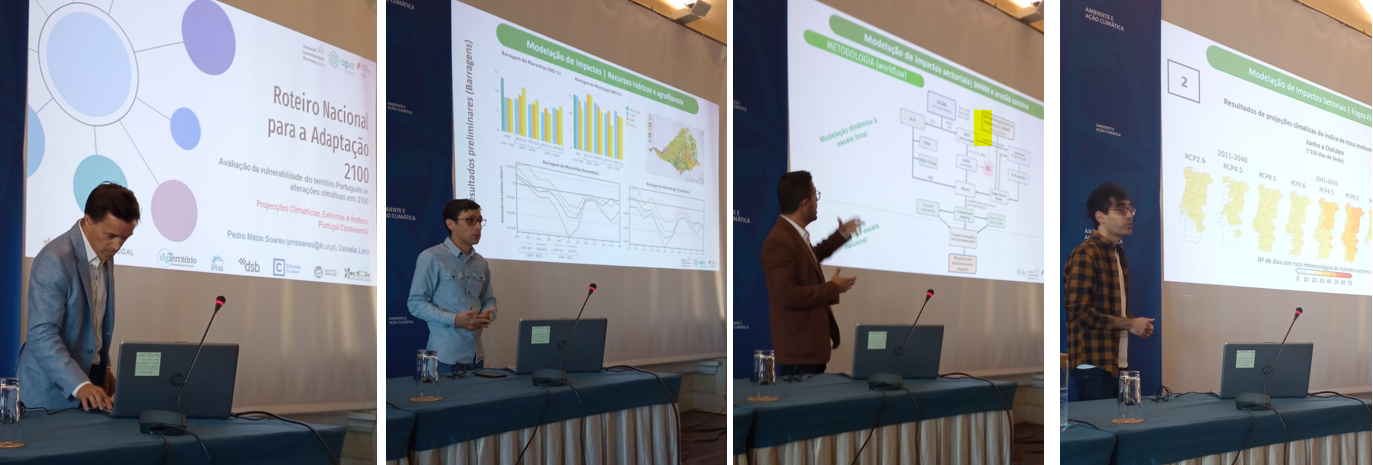
The purpose of the thematic rooms was to present the status of the work and collect information from the stakeholders, relevant to the successful continuation of the project and for RNA 2100 to be considered a project by everyone and for everyone!
The closing session was made by SGMAAC, as operator of the Environment program of the EEA Grants, and APA.
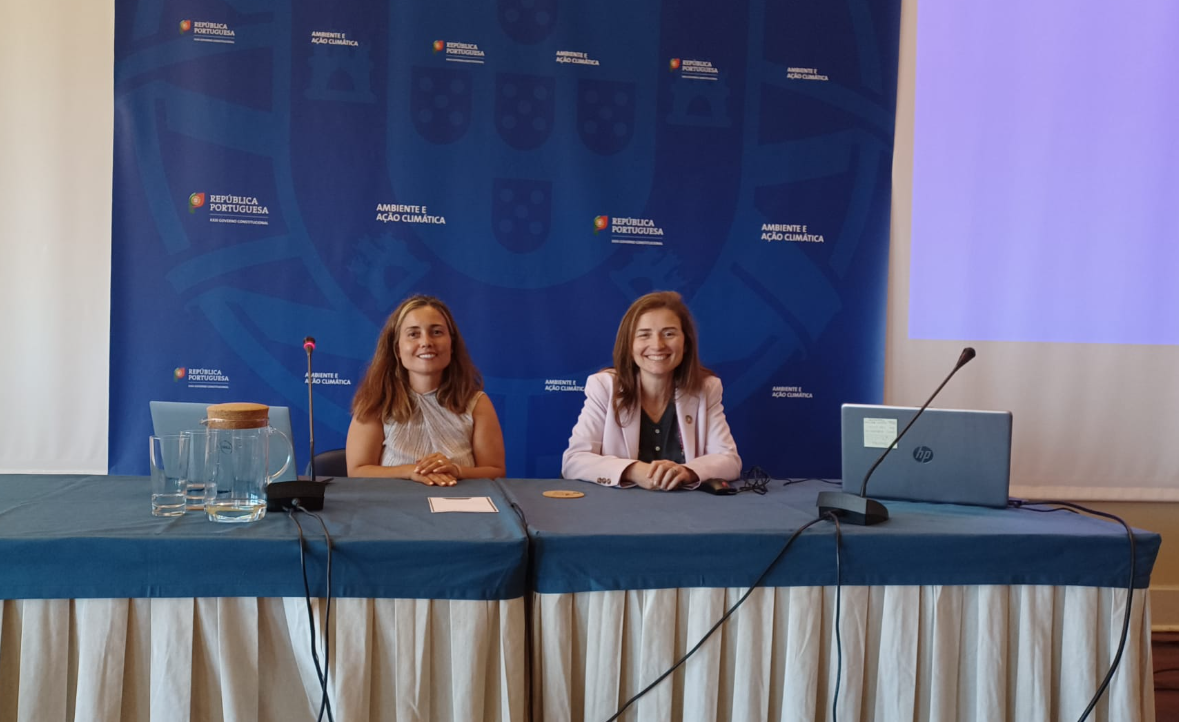
Thematic Rooms
Each thematic room was divided into two or three debate tables.
In the first exercise, 6 adaptation measures were made available and the participants had the possibility to indicate two more adaptation measures that they considered essential. In the second exercise, the objective was to prioritize these measures and distribute them in the short, medium and long term. In the third exercise, efforts were made to identify large potential areas for the implementation of measures in each region, with a map being made available to support this identification.
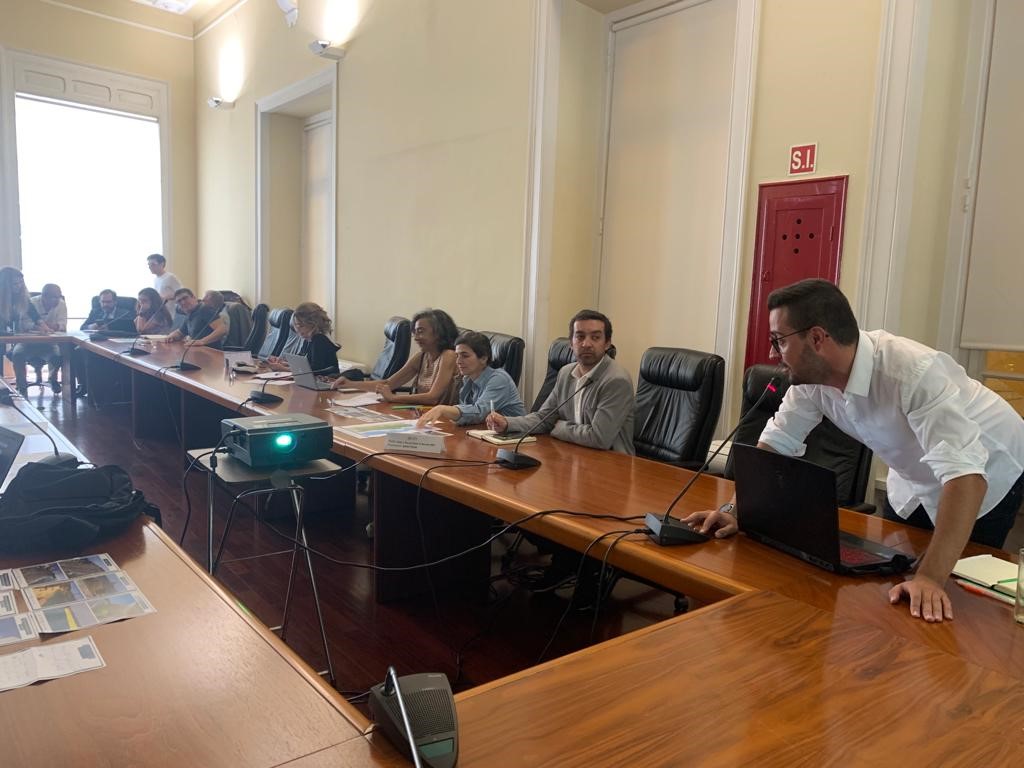
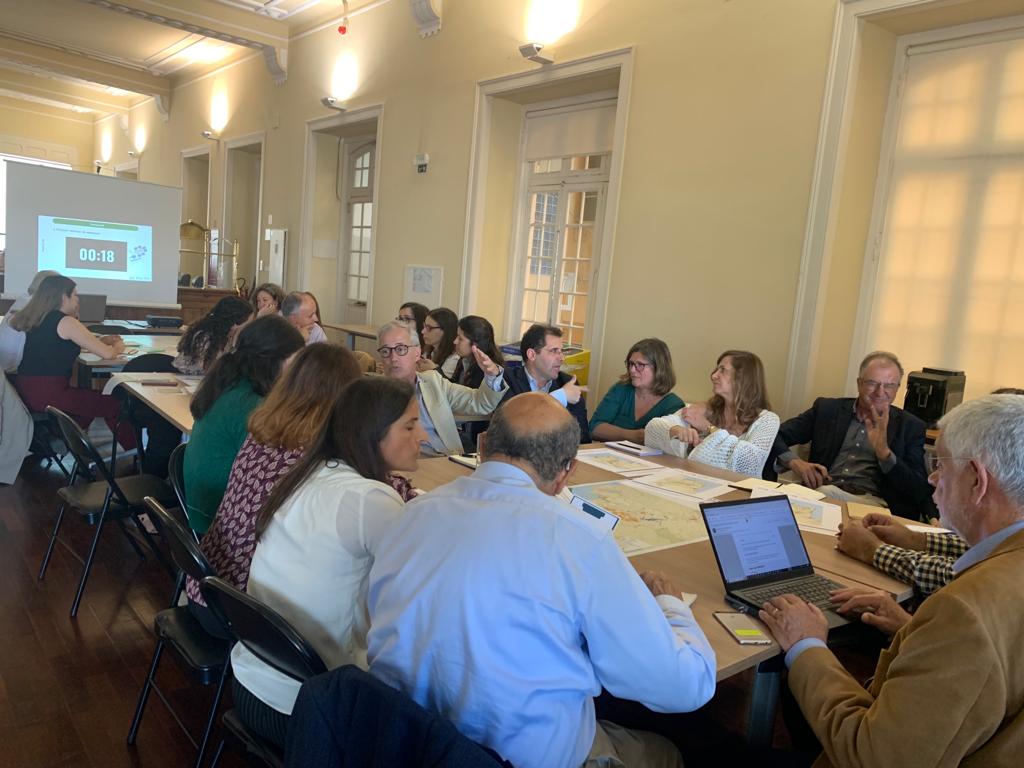
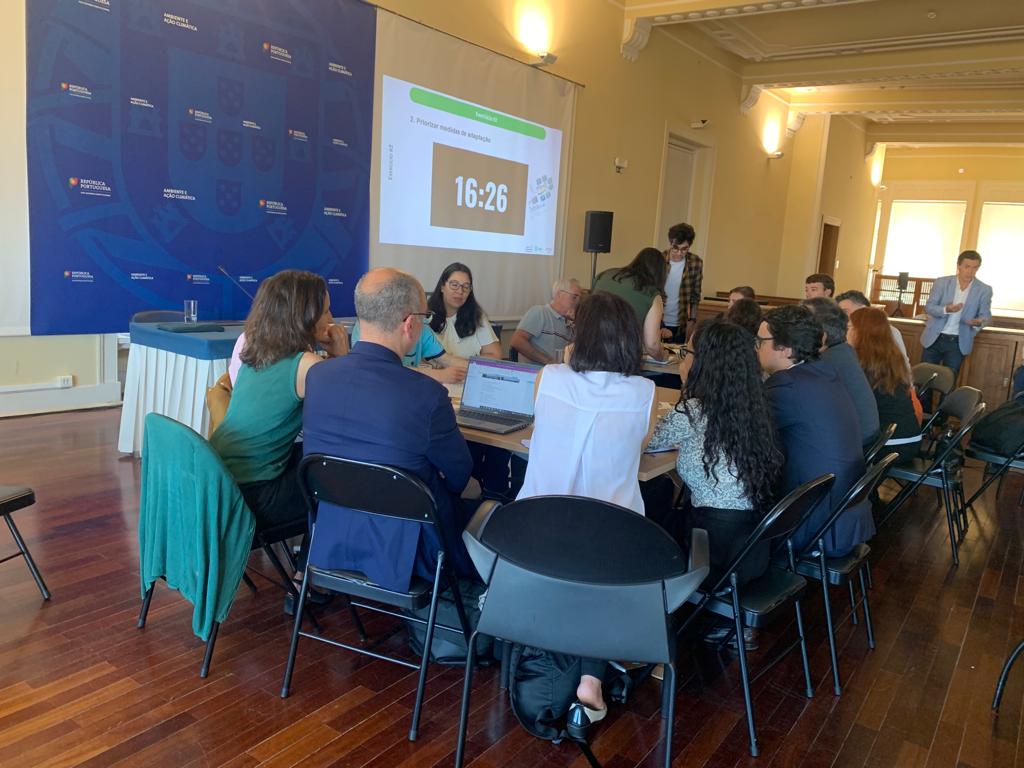
Adaptation measures proposed for discussion
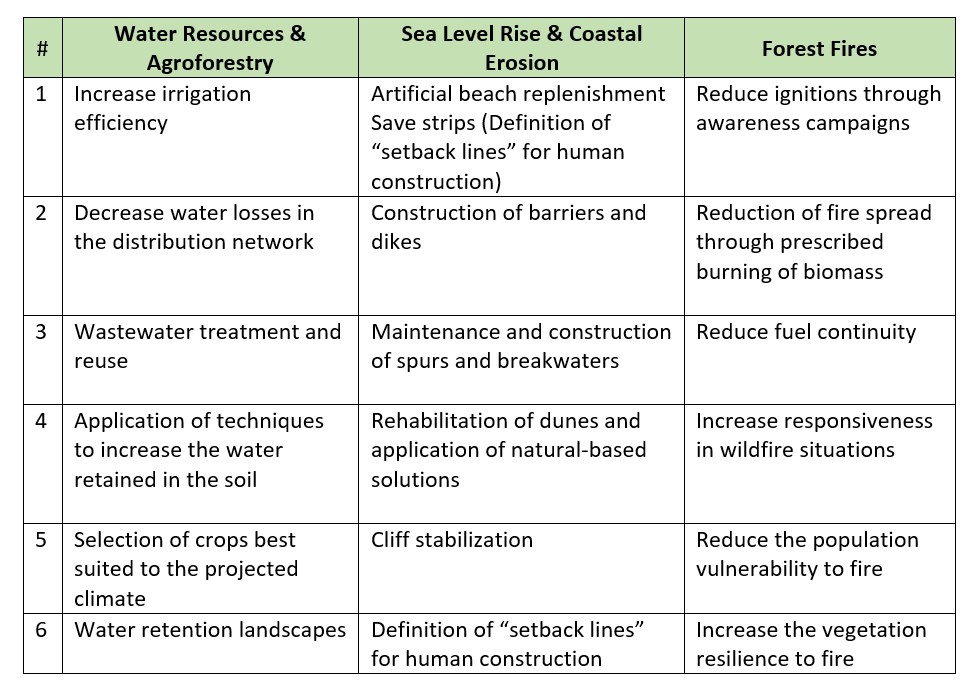
Final conclusions of the thematic sessions:
Water Resources & Agroforestry
New measures:
North:
- Improve the registration of water consumption associated with agriculture
- Optimization and storage of rainwater
Centre:
- Infiltration in urban areas
- Improve water efficiency in industry and domestic
South:
- Diversify water sources/Decrease demand/Increase efficiency
- Changing crops for fall/winter
Priorities:
- Crops more suited to the climate
- Decrease network losses
Sea Level Rise & Coastal Erosion
New measures:
- Renaturalization, retreat and accommodation
- Review of legislation
- Urban accommodation and ports
Priorities:
- Beach nourishments
- Rehabilitation of dunes (through NBS)
- Setback lines
Forest Fires
New measures:
- Settle population in rural areas
- Valuing the landscape; securing income through compensation for ecosystem services
- Systems for draining and valuing leftovers from pruning and fuel management
Priorities:
- Securing income through offsetting ecosystem services
- Fix population
- Increase forest resilience
- Reduce the vulnerability of the population to fire
